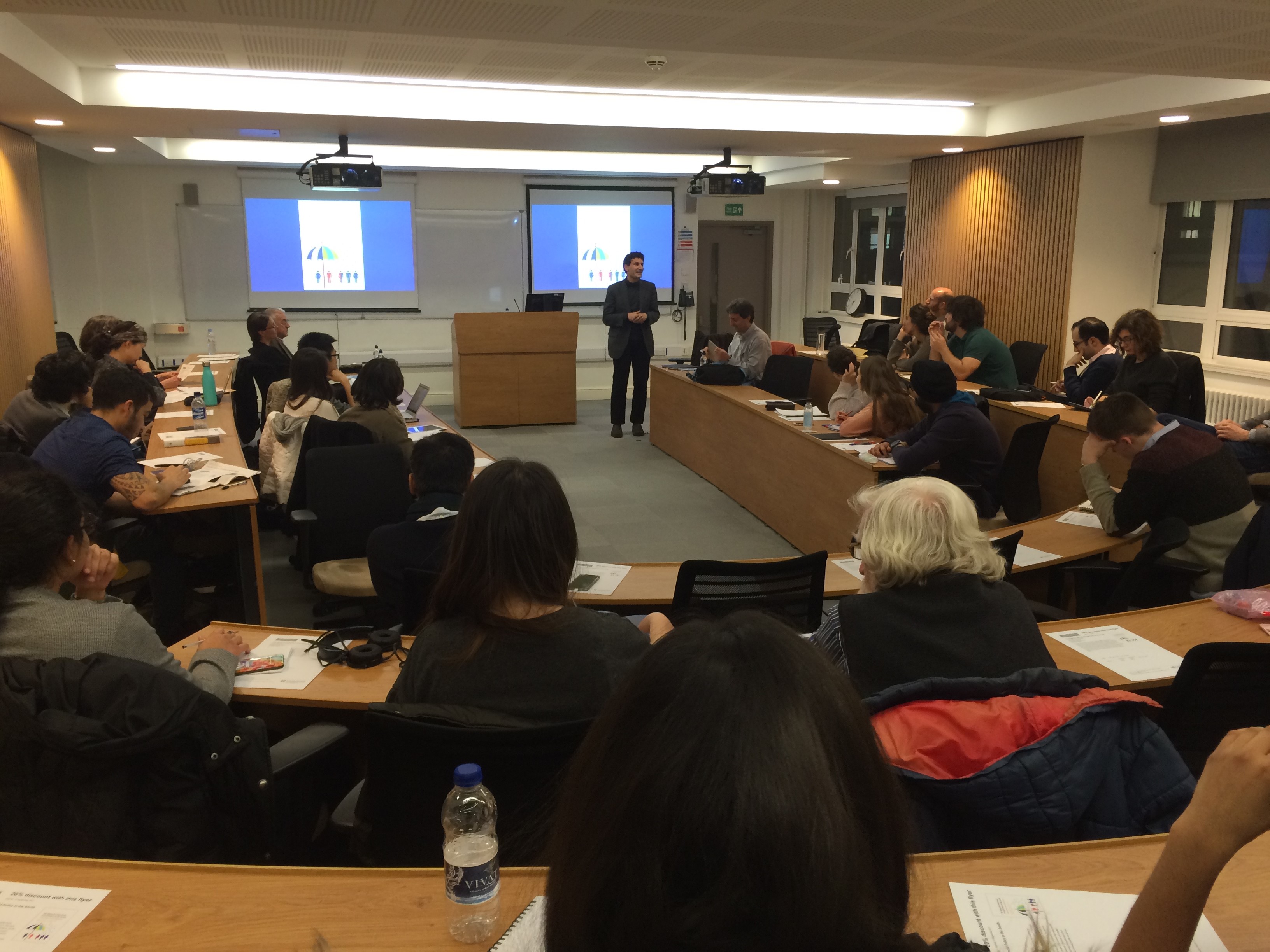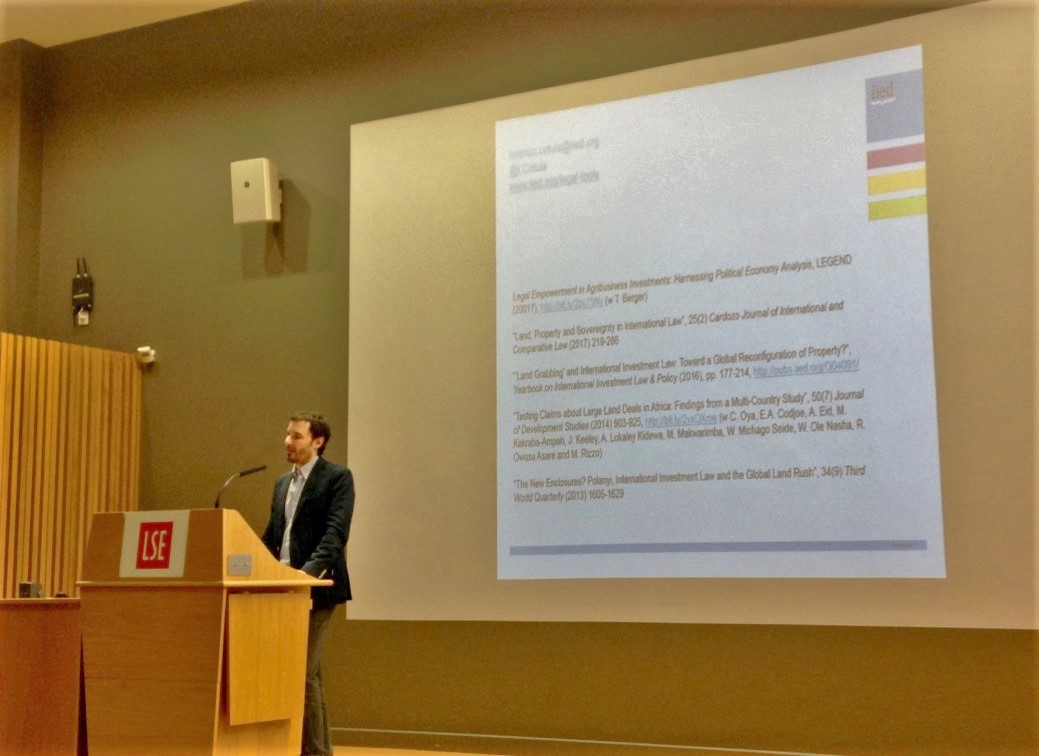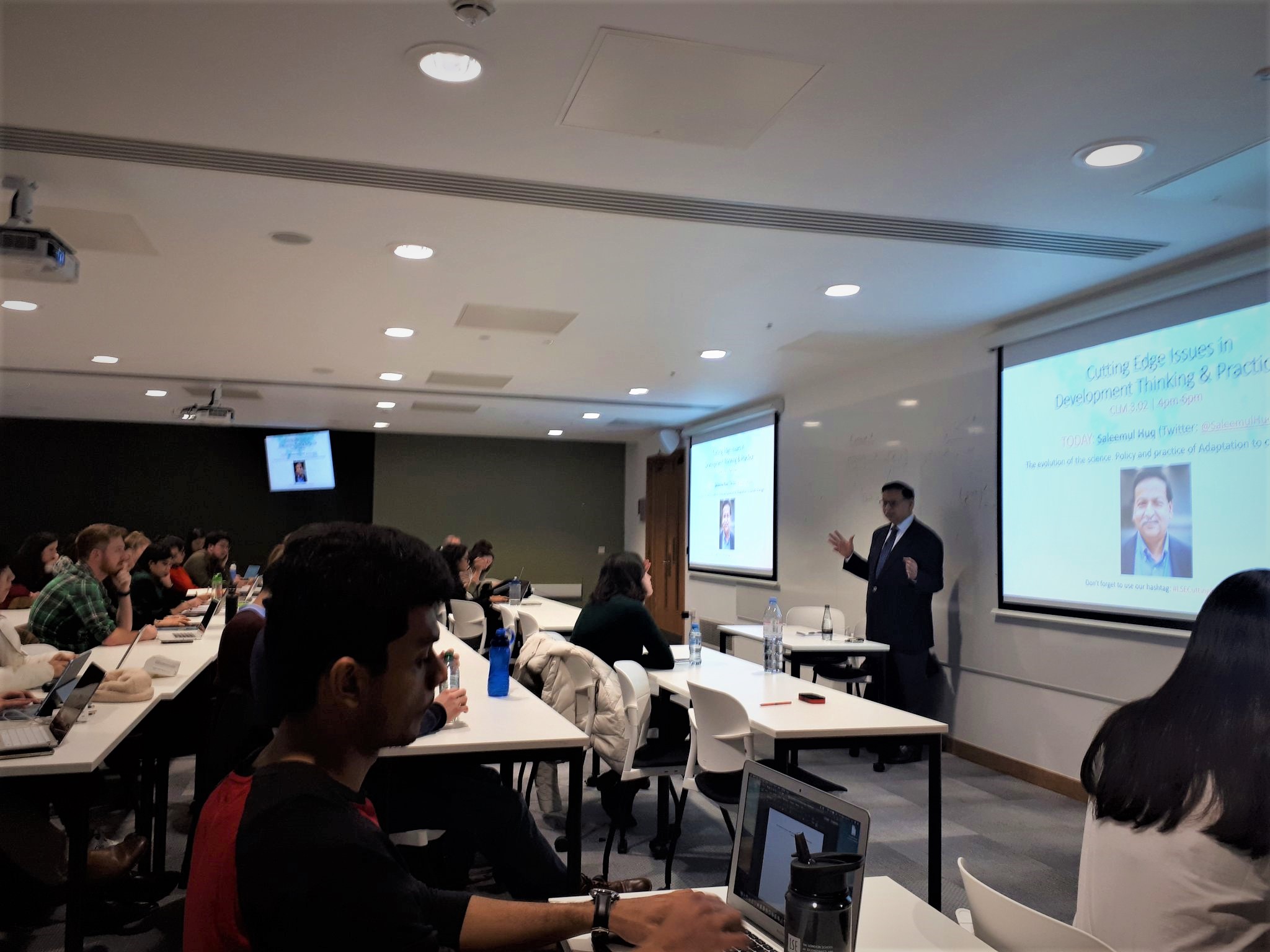On Thursday 22nd March 2018, MSc Development and Anthropology students were encouraged to join, participate and laugh in the Great Development Discussion. Professor Jean-Paul Faguet chaired this showdown between International Development and Anthropology professors. Proudly representing Development was our econometrics guru Dr Diana Weinhold, alongside the infamous Teddy Brett. From Anthropology were Professors Katy Gardner and Laura Bear. Msc Development Management Student Lucy White tells us how the discussion rolled out…

As anticipated, the debates kicked off from the word go.
The first question posed was, what is good vs. bad development? How can we successfully create a more equal world? One professor described good development as thinking about what the people themselves actually want. Do indigenous groups want to remain indigenous? Whilst there is the argument of cultural preservation, how do we know that these groups wish to preserve their culture? Or, is the conservation of indigenous culture a western preference- a charming, romanticised idealism of an unspoilt world? Or, is the economic revealed preference of such indigenous people to have education and television and pick-up trucks? The fact we pose this question is arguably bad development, because it imposes western values- should development practioners tell people what they may want?
This leads the debate to discuss, are there universal values? The social project of gender equality, for example, is one based upon assumptions and values built in the Western world. But what if this project is not a universal one? Do we have a right to enforce gender equality upon polygamist societies? Demographically, there quite simply are not 7 wives for every one man! Nonetheless, there are many men who enjoy living in a polygamist society. Can we enforce gender equality ideals upon them? Perhaps there are no universalistic values, but, from an anthropological perspective, there are certain core values that we can advocate in different societies to enhance social progress.
In a nutshell, development is progressive change. Orthodox theorists define this change as a transition from traditional to modern institutions. But, we must challenge, are the concepts of ‘traditional’ and ‘modern’ useful for development? From an anthropological perspective, it can be argued that the word ‘traditional’ itself is misleading. The caste system of India, and tribal groups in Africa, are traditional institutions in the eyes of development practioners. However, anthropologists argue that these are not traditional institutions, but are rather products of a complex colonial history that managed to weave into entrenched bureaucratic and labour market systems, reproducing inequality at all levels.
The development professors, however, argue that traditional and modern institutions are useful for understanding development. This is because traditional and modern societies co-exist in hybrid societies. The main difference between hybrid societies in developed and developing countries is that in developed countries, modern institutions are dominant. These modern institutions, unfortunately, tend to fail in countries in which traditional institutions are dominant. In Uganda, for example, the police force is severely corrupt and citizens may be forced to take justice into their own hands through acts of violence. Though we have been taught about justice and moral order, what is right and what is wrong, what would we do if there were an absence of systems in place to hold someone accountable for their actions? Perhaps regressive ‘pre-modern’ acts, such as violence, are sometimes necessary to build progressive societies.
Let us now speculate that all societies are progressive and well developed, where all people are healthy and educated. Who would perform the low-paid low-skilled jobs? Robots? Delving into this hypothetical world, there is a major concern that we will drive the planet into a state of catastrophe; global warming is well underway. We already consume twice as much as is sustainable, yet the ‘we’ in this is only a small proportion of the planet’s 7 billion people. In 30 years time, there will be 10 billion people, and it will be impossible for everyone to consume the way that the developed world has done in recent decades. Or, can the population continue to grow, whilst combatting climate change and providing equal opportunities to each and every individual? Let’s hope so!
Although the world is full of complexities and controversies, one thing that we can be sure of is that, whether we are development managers or anthropologists, we want to make the world a more equal place. If we use this belief and passion to guide our actions, working together towards one common goal, we have potential to succeed.
Lucy White is an MSc Development student in the Department of International Development.
The views expressed in this post are those of the author and in no way reflect those of the International Development LSE blog or the London School of Economics and Political ScieManagement nce.






